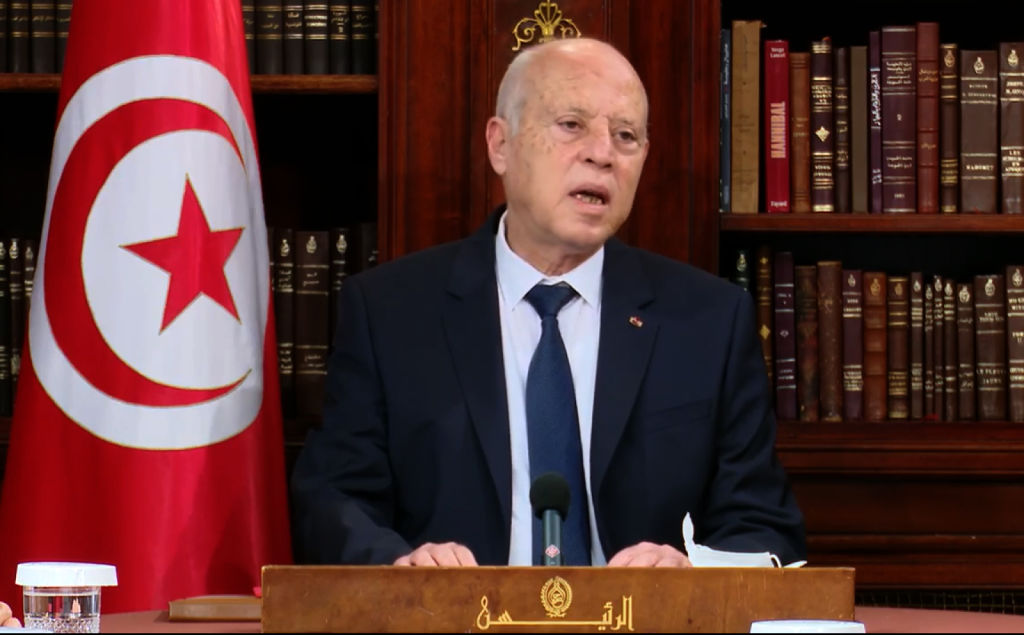
Tunisian parliament members said they would defy President Kais Saied and go ahead on Wednesday with their first full session since last summer when he suspended the chamber and moved to one-man rule.
More than half the members of parliament are expected to attend the online session and to hold a vote against the “exceptional measures” Saied has used since July to brush aside the 2014 democratic constitution and govern himself.
The session represents parliament’s most direct challenge to Saied, who has dismissed it as being “of the past”, and who late on Monday issued a stern warning that forces would confront “those who pushed Tunisians to fight”.
However, while the session may underscore increasing opposition to Saied and will challenge the legitimacy of his moves, it is not likely to alter his grip on power.
“We will go ahead with the expected session and are not afraid to defend a legitimate institution,” said Yamina Zoglami, a parliament member from the moderate Islamist Ennahda.
“The people did not withdraw confidence from us. The president closed parliament with a tank.”
The parliament’s increased confidence reflects broadening opposition to Saied as he tries to rewrite the constitution, take control of the judiciary and impose new restrictions on civil society.
Ennahda, the biggest party in the parliament with a quarter of seats, and its leader Rached Ghannouchi who is the parliament speaker, have been the most vocal critics of Saied.
Although political parties remain deeply divided against each other, more of them are now openly rallying against Saied and demanding he adopt an inclusive approach to any efforts to restructure the country’s politics.
Tunisia threw off autocratic rule in a 2011 revolution and introduced democracy, but its system that shared power between president and parliament has proven unpopular after years of political paralysis and economic stagnation.
More
Swiss solutions for storing the energy of tomorrow
The global challenge is not only to produce more energy from renewable sources, but also to store it efficiently and sustainably.
Saied, a political newcomer and constitutional law professor, was elected in 2019 in a landslide second-round victory against a media mogul who was facing corruption charges, and he promised to clean up Tunisian politics.
His critics accuse him of staging a coup last summer when he ousted the elected parliament and moved to one-man rule, saying his political reforms lack credibility.
As the economy moves towards disaster with the government seeking an international bailout and the powerful labour union warning of a general strike, many Tunisians have grown disillusioned with his focus on constitutional change.
However, Saied’s intervention last summer appeared to be immensely popular with a country sick of the political squabbling that had characterised a democratic era in which jobs grew scarce and public services declined.



